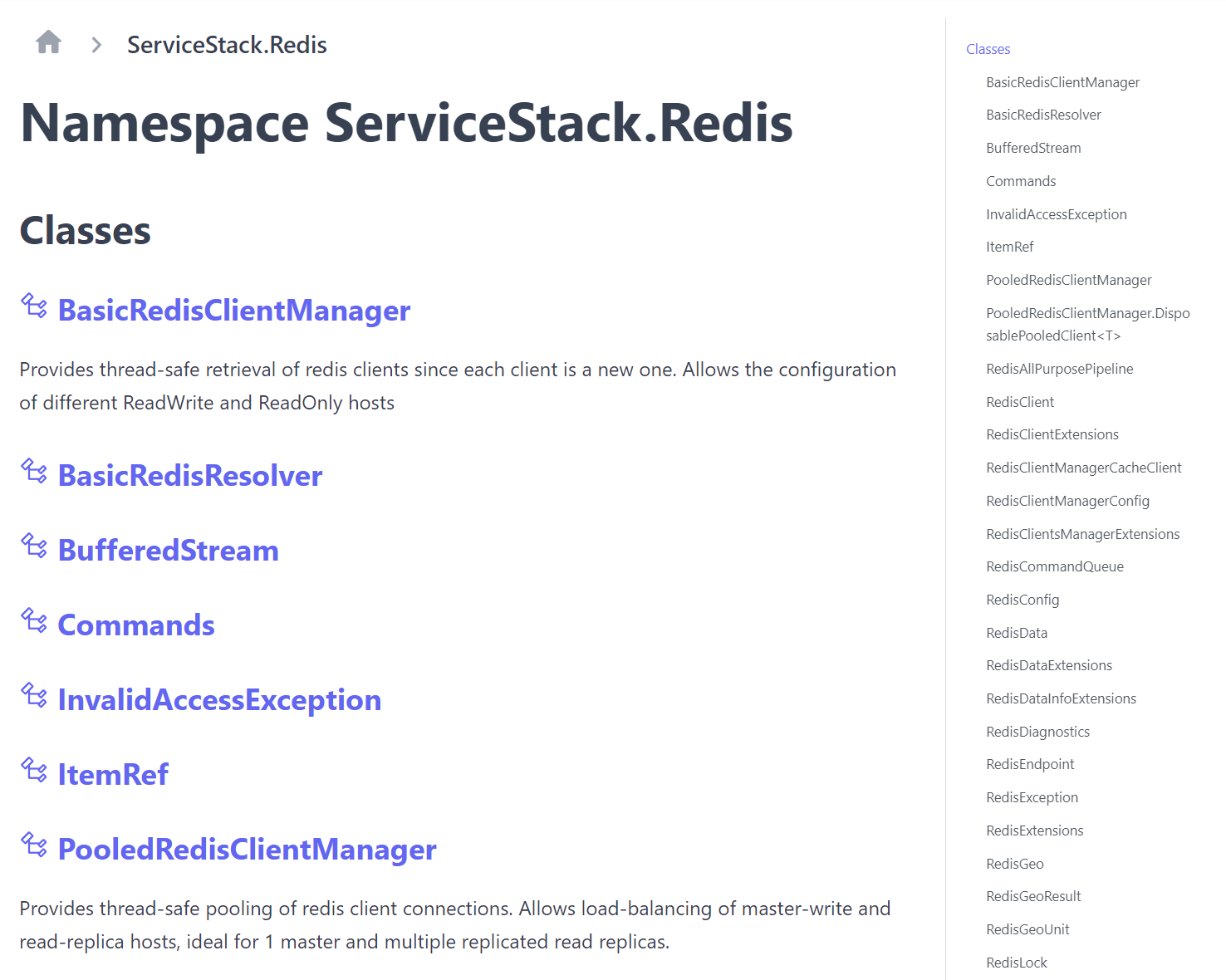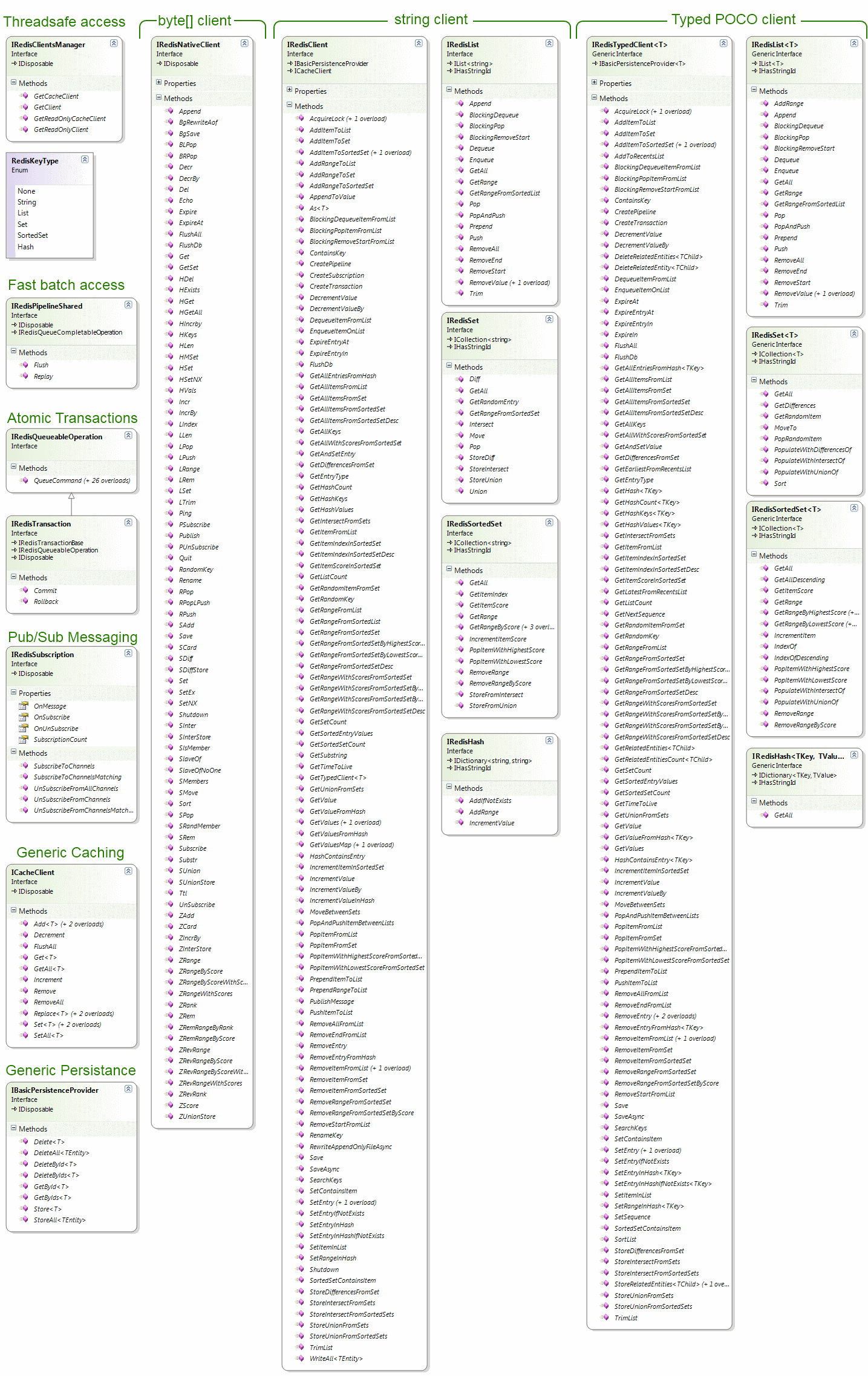ServiceStack's C# Redis Client is a simple, high-performance and feature-rich C# Client for Redis with native support and high-level abstractions for serializing POCOs and Complex Types supporting both native Sync and Async APIs.
There are a number of different APIs available with the RedisClient implementing the following interfaces:
- Caching Provider - If you are using Redis solely as a cache, you should bind to the ServiceStack's common interface as there already are In-Memory an Memcached implementations available in ServiceStack, allowing you to easily switch providers
- IRedisNativeClient / Async - For those wanting a low-level raw byte access (where you can control your own serialization/deserialization) that map 1:1 with Redis operations of the same name.
For most cases if you require access to Redis specific functionality you would want to bind to the interface below:
- IRedisClient / Async - Provides a friendlier, more descriptive API that lets you store values as strings (UTF8 encoding).
- Redis generic client APIs - created with
redis.As<T>()- returns a 'strongly-typed client' that provides a typed-interface for all redis value operations that works against any C#/.NET POCO type.
The interfaces work cleanly with any IOC and allows your app logic to bind to implementation-free interfaces which can easily be mocked and substituted.
An overview of class hierarchy for the C# Redis clients looks like:
RedisTypedClient (POCO) > RedisClient (string) > RedisNativeClient (raw byte[])
With each client providing different layers of abstraction:
- The RedisNativeClient exposes raw
byte[]apis and does no marshalling and passes all values directly to redis. - The RedisClient assumes
stringvalues and simply converts strings to UTF8 bytes before sending to Redis - The RedisTypedClient provides a generic interface allowing you to add POCO values. POCOs are serialized using ServiceStack.Text which is then converted to UTF8 bytes and sent to Redis.

